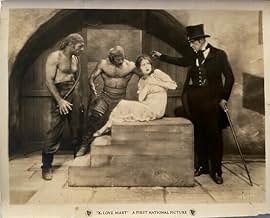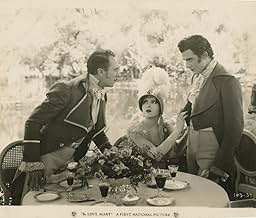Why is this movie titled 'The Love Mart'? Would 'The Love MARKET' have been too shocking? The opening credits say this movie is based on a novel, but the novel (which I've not read) had a different title, so the peculiar title on this movie can't be blamed on the original author. All of the following refers solely to the film version.
The story takes place in 19th-century New Orleans before the Civil War. Gilbert Roland is Victor, a wandering swashbuckler who is accustomed to settling all his arguments according to the code duello: he really seems to belong in an 18th-century story rather than the 19th. After getting into a minor argument he is challenged to a duel, which of course he wins handily. (Victor by name and victor by nature.) Having won the duel, it turns out that he has also won the challenger's property: a barbershop! I've never heard of property changing hands as the result of a duel, but I suppose it has happened. The wandering Victor decides to settle down as a barber, at least till a better chance comes along.
Now he meets Antoinette, a southern belle played by delicately beautiful Billie Dove. Victor develops a case of the toot-sweets for Antoinette, but she thinks he's a mere barber. (Maybe she just doesn't fancy a man with a striped pole.) She turns up her nose and sashays away before you can play 'Shave and a haircut.'
Along comes Captain Remy, played by snarling Noah Beery. Remy offers himself to Antoinette, but she ain't having any. So the captain forges evidence to indicate that blue-blood Antoinette is secretly a quadroon ... meaning that she's one part Negro. (Which part?) By the laws of the time, Antoinette is legally black ... and so she can be sold at slave auction to the highest bidder. Next thing she knows, Antoinette is chained, docketed as merchandise, and paraded before the lewdly-grinning slave-buyers, a slavering bunch of slavers. Yesterday she was a proud aristocrat; now she's a piece of flesh for sale.
SPOILERS COMING. It's no surprise at all that Victor rescues Antoinette, nor is it any surprise that he forces Remy to reveal the forgery ... thus safely restoring Antoinette to the privileged status of full (white) citizenship. What deeply offended me about this movie was its selective indignation towards slavery. As Billie Dove languishes in chains before the auction block, the mise-en-scene of the climactic sequences strongly emphasises the injustice of Antoinette's plight ... but it's only depicted as injustice because she's a white woman who has been framed as a quadroon. Nobody involved in this movie (on either side of the camera) seems especially upset about the institution of slavery ... providing it's only those pesky BLACK people who get bought and sold.
Beery is note-perfect in a crudely-written role, and there are good performances by Armand Kaliz, a surprisingly handsome Boris Karloff (as a dandified villain in a beaver hat) and a rotund George Bunny. The production design of this costume drama is excellent, and George Fitzmaurice's direction is brisk and efficient. I really wanted to enjoy 'The Love Mart', but its selectively outraged attitude towards slavery is deeply upsetting from a modern viewpoint. I'll rate this movie 7 out of 10.























